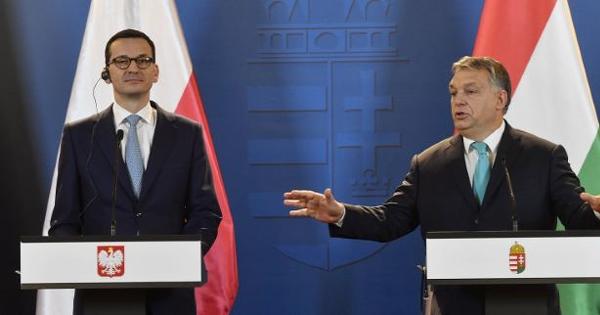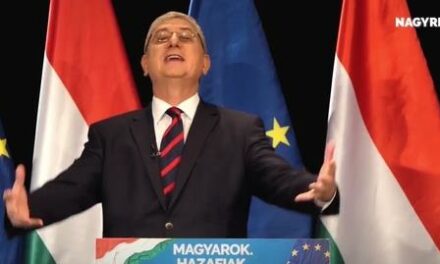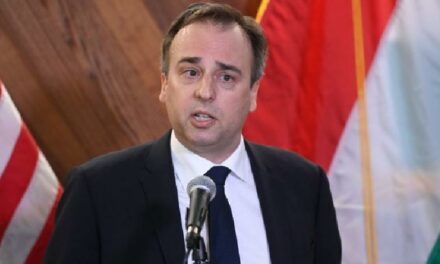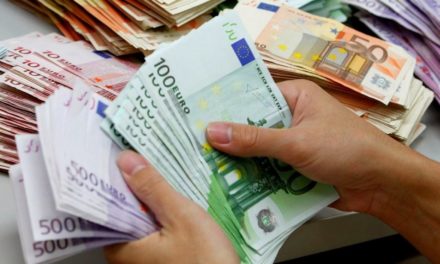Since the outbreak of the Russian-Ukrainian war, Polish-Hungarian relations have deteriorated significantly, thanks to the two states' different policies towards Russia and Ukraine. While the Poles almost go to war for Ukraine under the motto "For our freedom and your freedom" (Za wolność naszów i waszą), Hungary pursues a far more deliberate and moderate policy, the cornerstone of which is that the Orbán government is the Hungarian national, within it, the economic interest is treated as a priority. This caused a serious fault line between the two nations, which traditionally maintain good relations - almost friendly relations. Origo reviewed the analysis of the Central European Research Institute of Századvég.
If we look at the different history of Hungary and Poland, as well as the different lessons that can be drawn from it, we handle the situation that has arisen, which is currently causing disagreements, differently for understandable reasons. However, this does not mean the permanent deterioration of Polish-Hungarian relations. In order to get to know the whole picture, it is also worth pointing out that Warsaw's policy is not always understandable and well-founded even for the Poles. It is particularly interesting that the politics of PiS, i.e. the party of Polish Prime Minister Mateusz Morawiecki, are being questioned from the right, and criticism is coming from right-wing newspapers that the oil embargo may be harming Poland more than it is helping Ukraine to win.
As is known, the European Council reached an agreement last week on the sixth package of sanctions aimed at crippling Russia's economy, in which a great deal of emphasis is placed on the oil embargo, including the halting of crude oil imports from Russia. Poland was the main proponent of the package's early adoption. Mateusz Morawiecki before the negotiations
he also envisioned the introduction of a price equalization tool in the form of an import duty aimed at those who buy Russian crude oil.
FINALLY, FOLLOWING THE AGREEMENT ON TUESDAY MORNING, PRIME MINISTER VIKTOR ORBÁN ASSESSED THE ACHIEVED RESULTS AS SUCCESSFUL, ESPECIALLY EMPHASizing THAT HE SUCCEEDED IN PROTECTING THE RATE REDUCTION.
Regarding the negotiation and its outcome, Mateusz Morawiecki also spoke positively, in his opinion, "Poland had a special responsibility to convince its Visegrad partners, especially Hungary". As he wrote in his Facebook post: "we did it and solidarity prevailed"
In the Polish right-wing press, we can read that not everyone in Poland regards the agreement and its economic consequences as a success. On the other hand, the more left-liberal-leaning media organizations complain that a compromise agreement was reached, which contains significant concessions for, among others, Hungary, Slovakia and the Czech Republic. Moreover, the decision of the European Council does not reveal how long the Friendship Pipeline, which is strategically important from the Polish point of view, can be used.
At the same time, not only Poland, but also Ukraine are not completely satisfied, in their opinion the sixth sanctions package should have been agreed upon sooner. Ihor Zhokva, the deputy head of the office of President Volodymyr Zelenskyi, said that the decision was made "too slowly, too late" compared to previous experiences.
The topic of the latest episode of the political podcast "Polska Do Rzeczy" of the Polish right-wing newspaper Do Rzeczy was the sixth sanctions package, in which Paweł Lisicki, editor-in-chief of Do Rzeczy, and Rafał Ziemkiewicz, the newspaper's publicist, talked. Among other things, Budapest's attitude to the embargo was discussed in the program and Warsaw's policy was criticized with critical voices. Paweł Lisicki praised Viktor Orbán's stance and decisiveness, in his opinion, the Hungarian Prime Minister is "a politician [...] who thinks in the interests of his own country and its citizens".
Another participant in the discussion, Rafeł Ziemkiewicz, contrasted the policies of the Hungarian and Polish governments, evaluating the fact that
"NOBODY IN POLAND THINKS ABOUT NATIONAL INTERESTS", LIKE THEY DO IN HUNGARY.
Lisicki also compared the statements of the two prime ministers regarding the negotiations and highlighted that in his speeches Viktor Orbán prioritized the good of the Hungarian people - contrary to Morawiecki's statements - and "He negotiated as much as he could to ensure the interests of his citizens".
In the right-wing newspaper Wprost - which cannot be accused of being pro-Russian in the slightest - they wrote about the immunity fought for by Budapest, that "Orbán is doing the dirty work for other countries" again, which, according to the author, benefits the entire region as a whole.
From the examples mentioned above, it is clear that three months after the outbreak of the Russian-Ukrainian war, the voices that offer a pragmatic alternative to the already unrealistic pro-Ukrainian narrative and at the same time have a more understanding attitude towards the position represented by the Hungarian government have appeared in the Polish public opinion.
Source: Origo
Featured image: mfor.hu













